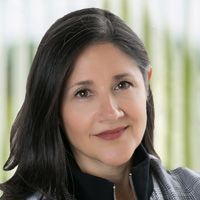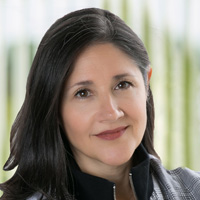5 Charitable Surprises about High-Net-Worth Families
They might be out of the spotlight, but smaller family foundations are stepping up their giving in this time of need.


Profit and prosper with the best of Kiplinger's advice on investing, taxes, retirement, personal finance and much more. Delivered daily. Enter your email in the box and click Sign Me Up.
You are now subscribed
Your newsletter sign-up was successful
Want to add more newsletters?

Delivered daily
Kiplinger Today
Profit and prosper with the best of Kiplinger's advice on investing, taxes, retirement, personal finance and much more delivered daily. Smart money moves start here.

Sent five days a week
Kiplinger A Step Ahead
Get practical help to make better financial decisions in your everyday life, from spending to savings on top deals.

Delivered daily
Kiplinger Closing Bell
Get today's biggest financial and investing headlines delivered to your inbox every day the U.S. stock market is open.

Sent twice a week
Kiplinger Adviser Intel
Financial pros across the country share best practices and fresh tactics to preserve and grow your wealth.

Delivered weekly
Kiplinger Tax Tips
Trim your federal and state tax bills with practical tax-planning and tax-cutting strategies.

Sent twice a week
Kiplinger Retirement Tips
Your twice-a-week guide to planning and enjoying a financially secure and richly rewarding retirement

Sent bimonthly.
Kiplinger Adviser Angle
Insights for advisers, wealth managers and other financial professionals.

Sent twice a week
Kiplinger Investing Weekly
Your twice-a-week roundup of promising stocks, funds, companies and industries you should consider, ones you should avoid, and why.

Sent weekly for six weeks
Kiplinger Invest for Retirement
Your step-by-step six-part series on how to invest for retirement, from devising a successful strategy to exactly which investments to choose.
Family philanthropy is a key driver of social change and a great way for high-net-worth (HNW) families to clarify their values, commit to a mission and work collaboratively across generations to build and protect their legacies.
We recently analyzed the grantmaking activities of more than 1,000 private foundations over the past 24 months to understand how and where wealthy families are focusing their giving. Our findings provide a benchmark for affluent philanthropists and the advisers who support them.
Here are our top five discoveries about HNW donors:
From just $107.88 $24.99 for Kiplinger Personal Finance
Become a smarter, better informed investor. Subscribe from just $107.88 $24.99, plus get up to 4 Special Issues

Sign up for Kiplinger’s Free Newsletters
Profit and prosper with the best of expert advice on investing, taxes, retirement, personal finance and more - straight to your e-mail.
Profit and prosper with the best of expert advice - straight to your e-mail.
They don’t just give the minimum
If you think affluent families only use their foundations to park assets and get tax benefits, think again. While foundations are required to give away 5% of their assets every year, those in our research sample gave away an average of 7.4% – a trend that has been constant in the 12 years we’ve conducted this analysis. Even more impressive, the smaller foundations, or those with less than $1 million in assets, were the biggest heroes in 2020: They gave an average of 15% of their assets.
They’re increasingly generous
The foundations we studied collectively funded approximately 1,000 more grants and dispersed $15 million more in 2020 than in 2019, an average of $339,032 per foundation. They also doubled their grants to individuals (GTIs), a giving capability unique to private foundations that enables donors to issue emergency funding directly to people in need instead of granting to a public charity.
They will answer the call
Judging from their actions in 2020, foundation donors will move swiftly to help in times of urgent need. After the United States declared a national emergency in March 2020 due to COVID-19, foundations nearly doubled their year-over-year grant volume in April from 5.6% to 9.7% of total activity. They also increased their giving to human services and public/societal benefits charities, which experienced the highest year-over-year increases of all the charitable sectors tracked.
Additionally, the dollars that donors granted to charity exceeded the funds they invested in their foundations for only the second time in 20 years (the first being in 2019), demonstrating a pronounced commitment to philanthropy during a time of heightened need.
They're loosening the reins on how their dollars are spent
Typically, philanthropists carefully define how they want their foundation dollars to be used by issuing “specific-purpose” grants. However, as they endeavored to meet the onslaught of urgent need in 2020, they eased their restrictions and gave more “general purpose” grants to afford charities maximum flexibility in how to use the funding. At 46% of all grants in 2020, it’s the most balanced split we’ve seen since 2010 when general purpose grants represented just 32% of giving.
Their resources are growing
Foundation endowments experienced double-digit growth in both 2020 and 2019, helping to fund the 2020 increase in grants and set the stage for future giving. Part of the growth was fueled by investment returns (roughly 55% of endowment assets are allocated to equities) and part was a factor of new contributions from funders who replenished an average of 57 cents for every 83 cents they disbursed in grants and expenses – a sure sign of ongoing charitable intent.
Despite the headlines that are given to megadonors, such as the Gates Foundation and the Ford Foundation, 98% of the roughly 100,000 private foundations in the U.S. have endowments of less than $50 million and 63% have less than $1 million. Great work is being fueled by people out of the spotlight who are quietly and persistently pursuing their philanthropic missions and effecting change.
To view our full study on HNW giving, visit here.
Profit and prosper with the best of Kiplinger's advice on investing, taxes, retirement, personal finance and much more. Delivered daily. Enter your email in the box and click Sign Me Up.

Hannah Shaw Grove is the chief marketing officer of Foundation Source, founder of "Private Wealth" magazine and author of 11 data-based books and hundreds of reports and articles on topics relating to the creation, management, disposition and transfer of wealth. Hannah has previously been the chief marketing officer at Apex Clearing, iCapital Network and Merrill Lynch Investment Managers and is a cum laude graduate of Harvard University. She holds the FINRA Series 6, 7, 24, 26 and 63 licenses.
-
 Nasdaq Leads a Rocky Risk-On Rally: Stock Market Today
Nasdaq Leads a Rocky Risk-On Rally: Stock Market TodayAnother worrying bout of late-session weakness couldn't take down the main equity indexes on Wednesday.
-
 Quiz: Do You Know How to Avoid the "Medigap Trap?"
Quiz: Do You Know How to Avoid the "Medigap Trap?"Quiz Test your basic knowledge of the "Medigap Trap" in our quick quiz.
-
 5 Top Tax-Efficient Mutual Funds for Smarter Investing
5 Top Tax-Efficient Mutual Funds for Smarter InvestingMutual funds are many things, but "tax-friendly" usually isn't one of them. These are the exceptions.
-
 Social Security Break-Even Math Is Helpful, But Don't Let It Dictate When You'll File
Social Security Break-Even Math Is Helpful, But Don't Let It Dictate When You'll FileYour Social Security break-even age tells you how long you'd need to live for delaying to pay off, but shouldn't be the sole basis for deciding when to claim.
-
 I'm an Opportunity Zone Pro: This Is How to Deliver Roth-Like Tax-Free Growth (Without Contribution Limits)
I'm an Opportunity Zone Pro: This Is How to Deliver Roth-Like Tax-Free Growth (Without Contribution Limits)Investors who combine Roth IRAs, the gold standard of tax-free savings, with qualified opportunity funds could enjoy decades of tax-free growth.
-
 One of the Most Powerful Wealth-Building Moves a Woman Can Make: A Midcareer Pivot
One of the Most Powerful Wealth-Building Moves a Woman Can Make: A Midcareer PivotIf it feels like you can't sustain what you're doing for the next 20 years, it's time for an honest look at what's draining you and what energizes you.
-
 I'm a Wealth Adviser Obsessed With Mahjong: Here Are 8 Ways It Can Teach Us How to Manage Our Money
I'm a Wealth Adviser Obsessed With Mahjong: Here Are 8 Ways It Can Teach Us How to Manage Our MoneyThis increasingly popular Chinese game can teach us not only how to help manage our money but also how important it is to connect with other people.
-
 Looking for a Financial Book That Won't Put Your Young Adult to Sleep? This One Makes 'Cents'
Looking for a Financial Book That Won't Put Your Young Adult to Sleep? This One Makes 'Cents'"Wealth Your Way" by Cosmo DeStefano offers a highly accessible guide for young adults and their parents on building wealth through simple, consistent habits.
-
 Global Uncertainty Has Investors Running Scared: This Is How Advisers Can Reassure Them
Global Uncertainty Has Investors Running Scared: This Is How Advisers Can Reassure ThemHow can advisers reassure clients nervous about their plans in an increasingly complex and rapidly changing world? This conversational framework provides the key.
-
 I'm a Real Estate Investing Pro: This Is How to Use 1031 Exchanges to Scale Up Your Real Estate Empire
I'm a Real Estate Investing Pro: This Is How to Use 1031 Exchanges to Scale Up Your Real Estate EmpireSmall rental properties can be excellent investments, but you can use 1031 exchanges to transition to commercial real estate for bigger wealth-building.
-
 Should You Jump on the Roth Conversion Bandwagon? A Financial Adviser Weighs In
Should You Jump on the Roth Conversion Bandwagon? A Financial Adviser Weighs InRoth conversions are all the rage, but what works well for one household can cause financial strain for another. This is what you should consider before moving ahead.